
Melekeok: The Heart of Palau's Tranquil Charm
Nestled on the eastern coast of Babeldaob, Palau's largest island, Melekeok is a gem waiting to be discovered. This serene town is the capital of Palau and is known for its tranquil ambiance and rich cultural heritage. Melekeok offers a unique blend of natural beauty and historical significance, making it a must-visit destination for travelers seeking both relaxation and adventure. One of the main attractions in Melekeok is the stunning Palau National Capitol Complex. This impressive building, set against a backdrop of lush greenery and rolling hills, is a symbol of Palau's independence and governance. Visitors can take guided tours to learn more about Palau's political history and enjoy the panoramic views from the Capitol grounds. Nature enthusiasts will find Melekeok to be a paradise. The nearby Ngerulmud Beach offers pristine white sands and crystal-clear waters perfect for swimming and snorkeling. For a more adventurous experience, explore the dense jungles and scenic trails of the surrounding area. Birdwatchers will be delighted by the variety of exotic birds that inhabit the region. Cultural aficionados will appreciate Melekeok's traditional charm. The town is home to several historical sites, including ancient stone paths and traditional meeting houses known as 'bai.' These structures provide a glimpse into the island's rich cultural past and the enduring traditions of the Palauan people. Visitors can also engage with locals and participate in cultural events and festivals to gain a deeper understanding of Palau's vibrant heritage.
Local tips in Melekeok
- Visit the Palau National Capitol Complex early in the morning to avoid crowds and enjoy the best lighting for photographs.
- Bring insect repellent if you plan to explore the jungle trails, as mosquitoes can be prevalent.
- Engage with locals to learn about the best times to visit cultural sites and participate in traditional events.
- Carry enough cash, as ATMs may be limited outside major tourist areas.
- Respect local customs and dress modestly when visiting traditional sites and villages.
Melekeok: The Heart of Palau's Tranquil Charm
Nestled on the eastern coast of Babeldaob, Palau's largest island, Melekeok is a gem waiting to be discovered. This serene town is the capital of Palau and is known for its tranquil ambiance and rich cultural heritage. Melekeok offers a unique blend of natural beauty and historical significance, making it a must-visit destination for travelers seeking both relaxation and adventure. One of the main attractions in Melekeok is the stunning Palau National Capitol Complex. This impressive building, set against a backdrop of lush greenery and rolling hills, is a symbol of Palau's independence and governance. Visitors can take guided tours to learn more about Palau's political history and enjoy the panoramic views from the Capitol grounds. Nature enthusiasts will find Melekeok to be a paradise. The nearby Ngerulmud Beach offers pristine white sands and crystal-clear waters perfect for swimming and snorkeling. For a more adventurous experience, explore the dense jungles and scenic trails of the surrounding area. Birdwatchers will be delighted by the variety of exotic birds that inhabit the region. Cultural aficionados will appreciate Melekeok's traditional charm. The town is home to several historical sites, including ancient stone paths and traditional meeting houses known as 'bai.' These structures provide a glimpse into the island's rich cultural past and the enduring traditions of the Palauan people. Visitors can also engage with locals and participate in cultural events and festivals to gain a deeper understanding of Palau's vibrant heritage.
When is the best time to go to Melekeok?
Iconic landmarks you can’t miss
Belau National Museum
Explore Palau's rich culture and heritage at Belau National Museum, a must-visit destination for travelers seeking to understand the islands' history.
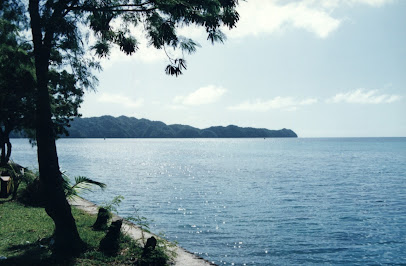
Jellyfish Lake
Experience the enchanting underwater world of Jellyfish Lake in Koror, Palau, where millions of stingless jellyfish create a mesmerizing snorkeling paradise.
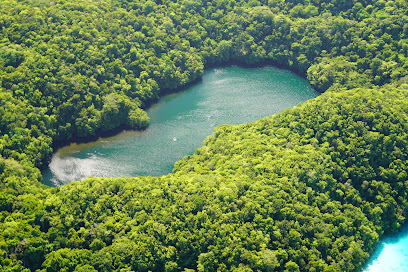
Japan-Palau Friendship Bridge
Explore the Japan-Palau Friendship Bridge, a stunning architectural gem that symbolizes unity and offers breathtaking views in the heart of Palau.
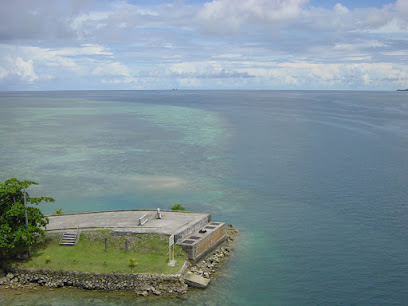
Dolphins Pacific
Explore Dolphins Pacific in Koror, Palau, and create unforgettable memories while learning about marine conservation and enjoying interactive experiences with dolphins.
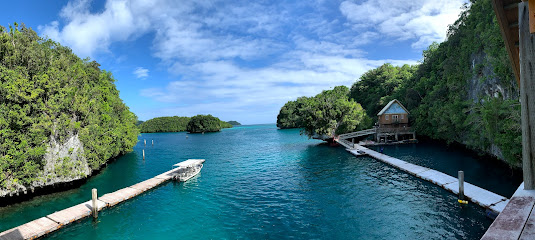
Palau Aquarium
Explore the enchanting marine life at Palau Aquarium, a top tourist attraction in Koror showcasing vibrant coral reefs and diverse sea creatures.
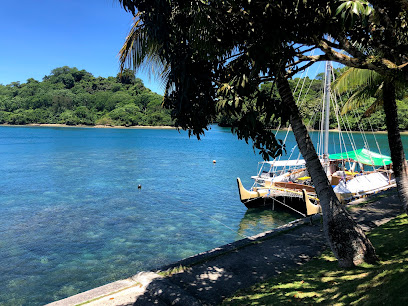
Badrulchau Stone Monoliths
Discover the ancient Badrulchau Stone Monoliths in Palau, a captivating archaeological site surrounded by stunning natural beauty.
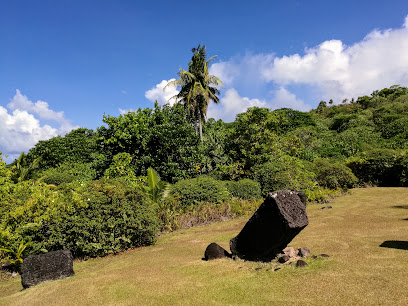
Palau National Capital
Explore the vibrant Palau National Capital, where stunning landscapes meet rich culture in the heart of Melekeok.
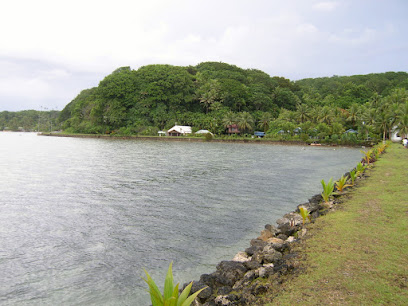
Peleliu Peace Memorial Park
Explore the serene Peleliu Peace Memorial Park, a tribute to valor and sacrifice in World War II, surrounded by stunning natural beauty.
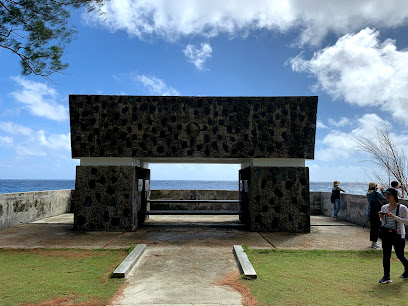
World War II Japanese Communications Center
Explore the World War II Japanese Communications Center in Palau, an essential historical landmark revealing the island's wartime past and strategic significance.
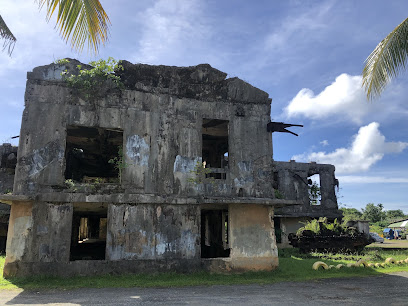
Airai Bai
Discover the mesmerizing beauty of Airai Bai, Palau's stunning natural attraction with vibrant marine life and breathtaking landscapes perfect for adventure seekers.
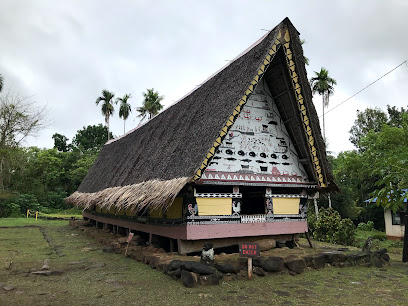
Palau Beach Bungalows
Experience the stunning beauty and tranquility of Palau Beach Bungalows, a perfect getaway for relaxation and adventure amidst pristine shores.
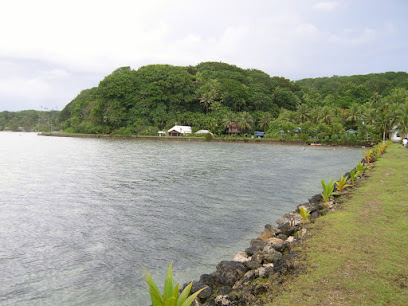
81st Infantry Division Memorial
Explore the 81st Infantry Division Memorial in Peleliu, Palau—a historic landmark honoring World War II heroes amidst stunning natural beauty.
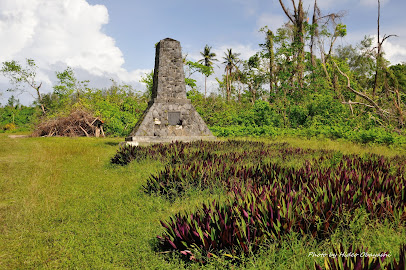
Palau Visitors Authority
Explore the stunning beauty and rich culture of Palau through the Palau Visitors Authority, your essential resource for unforgettable adventures.
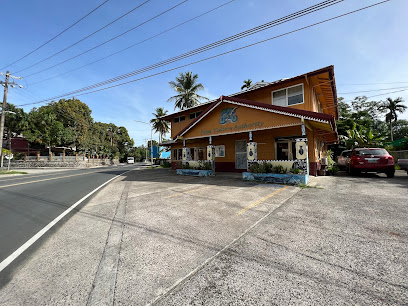
Bai Melekeong
Immerse yourself in the rich history and serene beauty of Bai Melekeong, a captivating landmark in Melekeok, Palau.
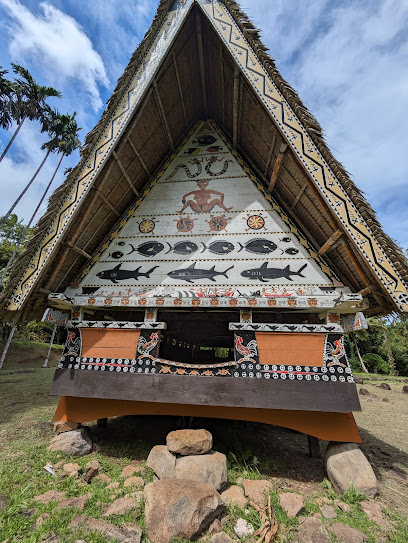
Chandelier Cave
Discover the enchanting Chandelier Cave in Palau, where stunning rock formations and crystal-clear waters create a mesmerizing natural wonder.
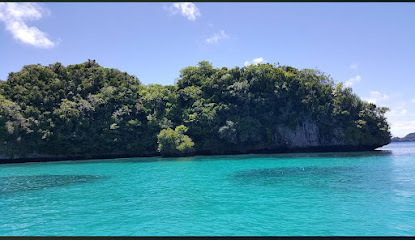
Unmissable attractions to see
Milky Way
Discover the breathtaking beauty of the Milky Way in Koror, Palau, where pristine waters and lush landscapes await every traveler.
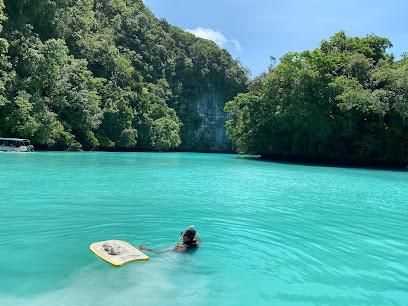
Belau National Museum
Explore the cultural heart of Palau at Belau National Museum, where history, art, and nature converge to tell the story of this beautiful nation.
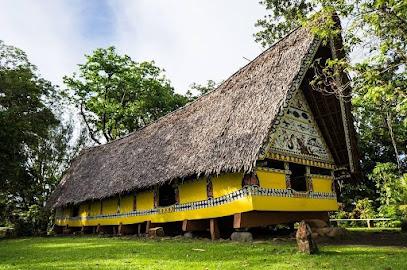
Jellyfish Lake
Immerse yourself in the surreal experience of swimming with harmless jellyfish at Jellyfish Lake in Koror, Palau, a true natural wonder.
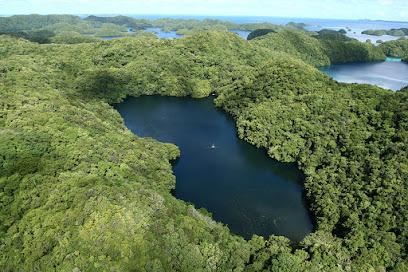
Island Paradise Resort Club
Discover the enchanting beauty of Palau at Island Paradise Resort Club, where adventure meets tranquility in an idyllic setting.
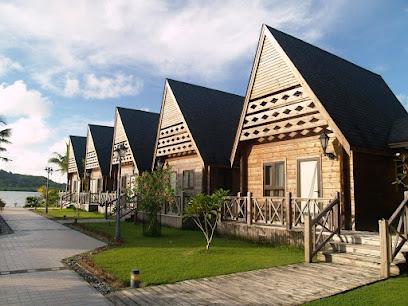
Etpison Museum
Explore the captivating stories and traditions of Palau at the Etpison Museum, a must-visit cultural gem in Koror.
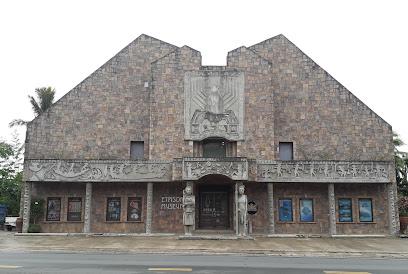
Ngermeaus Island Park
Explore the natural beauty and tranquility of Ngermeaus Island Park in Palau, a serene destination perfect for adventure and relaxation.
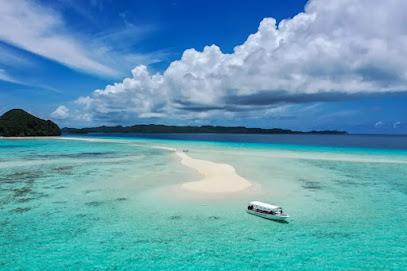
Neco Marine Palau
Discover the unparalleled underwater beauty of Palau with Neco Marine, your gateway to unforgettable dive and marine adventures in paradise.
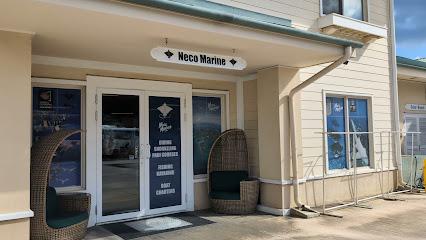
The Rock Islands
Explore the breathtaking natural beauty and rich marine biodiversity of the Rock Islands in Palau, a UNESCO World Heritage site.
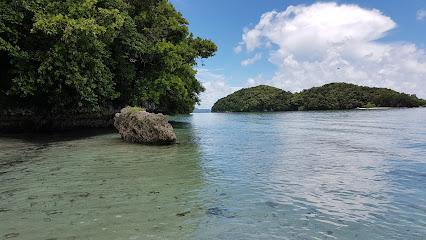
Ngatpang Tabecheding Waterfall
Explore the enchanting Ngatpang Tabecheding Waterfall in Palau, a serene escape into nature's beauty and adventure.
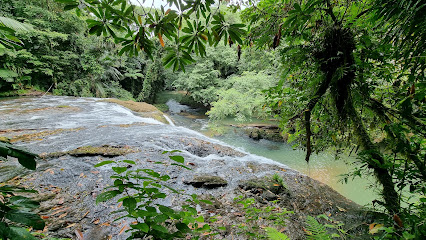
Ngerchelchuus
Discover the breathtaking landscapes of Ngerchelchuus, a premier hiking area in Palau, offering stunning trails and vibrant wildlife in a serene environment.
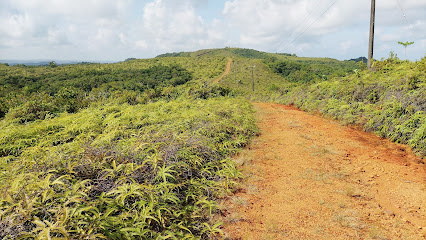
Sunset View Hut
Experience the magical sunsets of Palau at Sunset View Hut, a serene tourist attraction offering stunning views and a peaceful atmosphere.
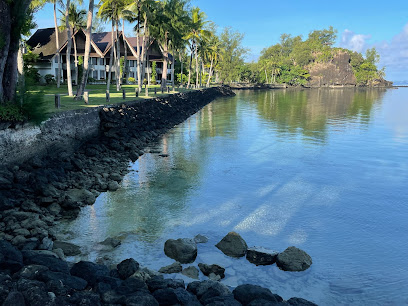
Ngerderar Watershed Conservation Area
Discover the natural beauty and historical treasures of Ngerderar Watershed Conservation Area in Aimeliik, Palau, a serene escape for nature lovers and history buffs.
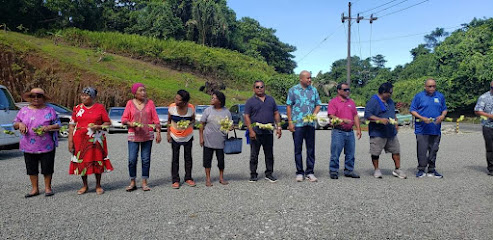
Juvy’s Hideout
Explore the breathtaking beauty and vibrant culture at Juvy's Hideout, a tropical paradise in Koror, Palau, perfect for nature lovers and adventurers.
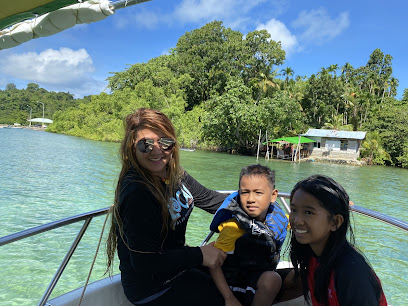
Ngerchebal
Discover the serene beauty and cultural heritage of Ngerchebal, a hidden tourist attraction in Aimeliik, Palau, perfect for nature lovers and explorers.
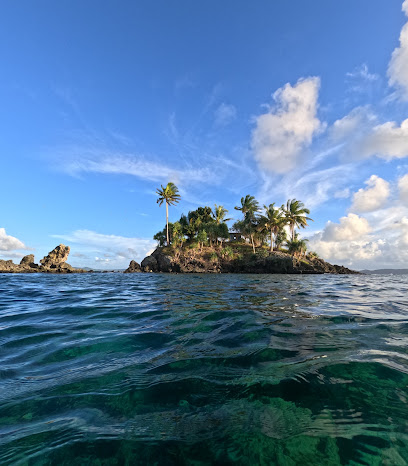
Turtle Wall
Explore the vibrant marine life and stunning coral formations at Turtle Wall in Peleliu, Palau – a paradise for snorkeling and diving enthusiasts.

Essential places to dine
Drop Off Bar and Grill
Experience the culinary delights of Koror at Drop Off Bar and Grill with delicious local flavors in a vibrant atmosphere.
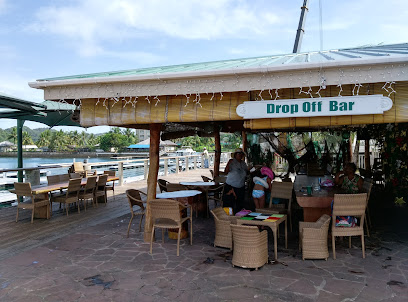
The Taj
Experience authentic Indian cuisine at The Taj in Koror, Palau – where rich flavors meet warm hospitality.
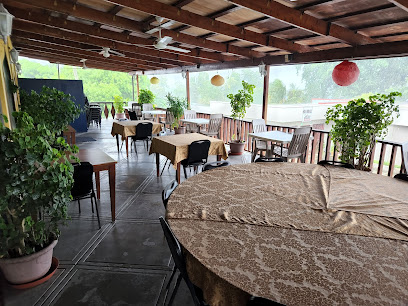
Elilai Seaside Dining
Experience fine dining with breathtaking ocean views at Elilai Seaside Dining in Koror, Palau – where culinary artistry meets natural beauty.
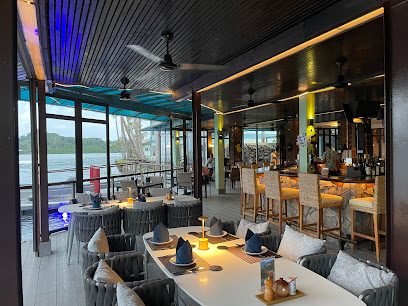
Tori Tori
Experience authentic Japanese cuisine at Tori Tori in Koror, Palau - where tradition meets tropical paradise.
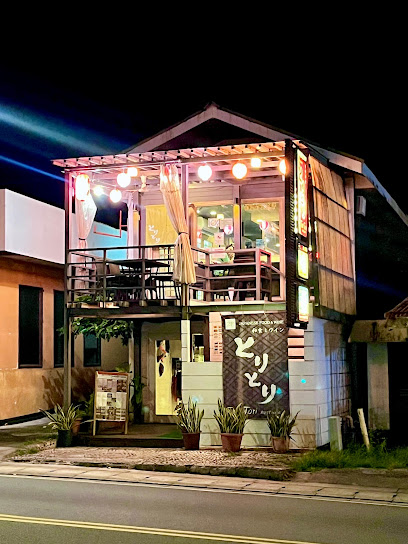
The Canoe House
Experience vibrant dining at The Canoe House in Koror, Palau - where delicious food meets lively entertainment.
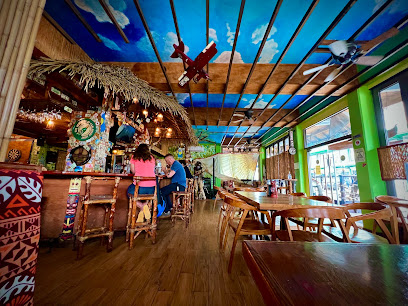
Rock Island Cafe
Discover authentic Palauan flavors at Rock Island Cafe in Koror – where every meal is a celebration of local cuisine and culture.
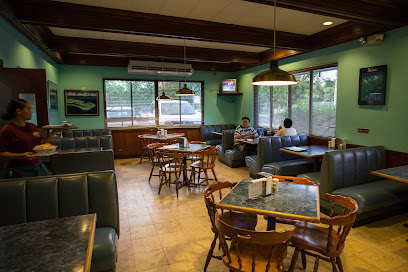
Coffee Berry
Discover authentic Palauan flavors at Coffee Berry in Koror - a cozy cafe blending tradition with a modern twist.
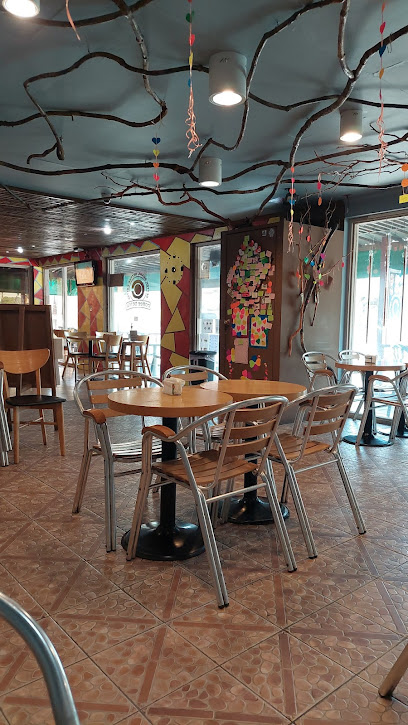
Palm Bay Bistro
Experience the vibrant flavors of Pan Asian cuisine at Palm Bay Bistro in Malakal – a must-visit destination for food lovers in Palau.
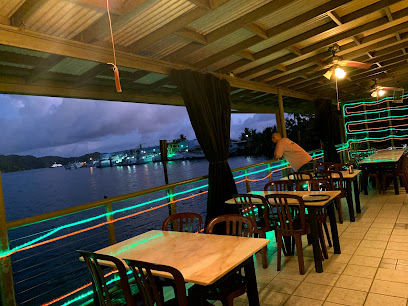
Suriyothai
Experience authentic Thai cuisine at Suriyothai in Koror, where every dish tells a story through vibrant flavors and traditional recipes.
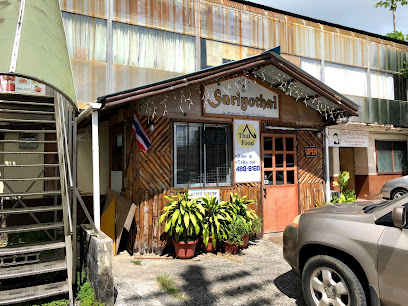
Carp Restaurant
Experience authentic Palauan cuisine at Carp Restaurant – where fresh flavors meet affordability in Koror.
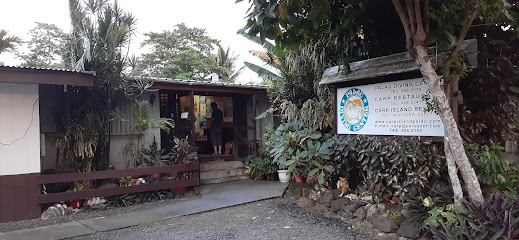
7 Eat Restaurant
Experience authentic Palauan cuisine at 7 Eat Restaurant in Koror—delicious dishes made with fresh local ingredients await you.
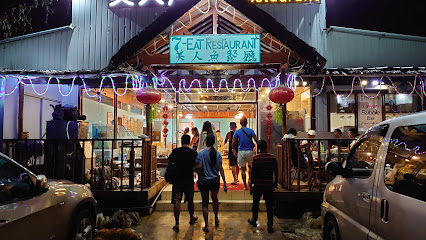
Palau Umi Korean and Japanese Cuisine
Experience the fusion of Korean and Japanese cuisines at Palau Umi - a must-visit destination for food lovers in Koror.
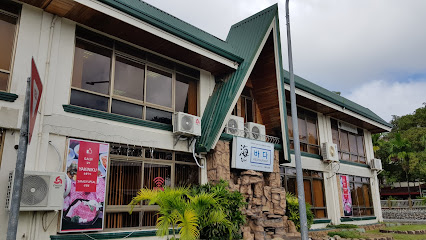
Okemii Deli & Internet Cafe
Experience the vibrant flavors of Palau at Okemii Deli & Internet Cafe - where culinary delight meets community spirit.
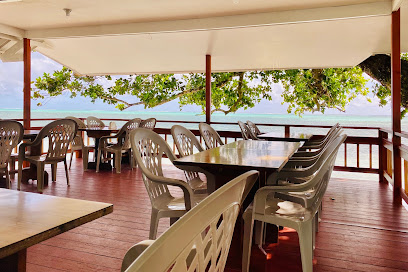
Red Rooster Cafe
Experience the vibrant culinary scene at Red Rooster Cafe in Koror, Palau - where local flavors meet international cuisine.
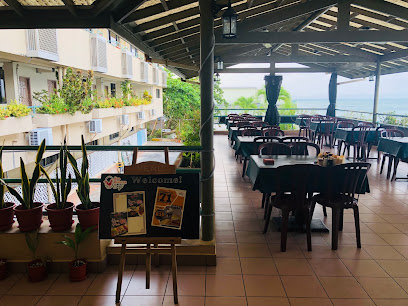
King Palace
Savor authentic Palauan cuisine at King Palace in Koror - A culinary journey through local flavors awaits!
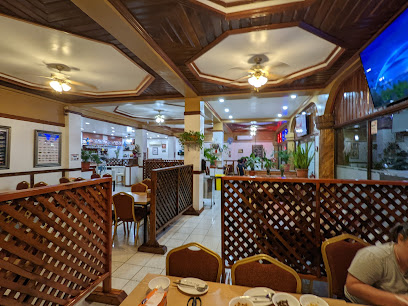
Markets, malls and hidden boutiques
Surangel and Sons Co. - Koror
Explore Surangel and Sons Co. in Koror for an unforgettable shopping experience filled with local treasures and unique souvenirs from Palau.
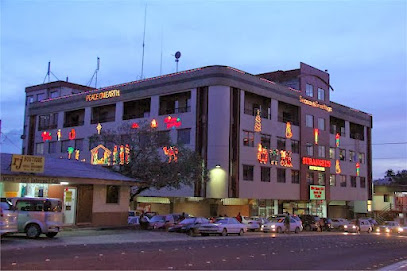
Rur Gift Shop & Cafe
Explore the unique charm of Rur Gift Shop & Cafe in Koror, Palau, where local crafts and flavors meet in a cozy atmosphere.
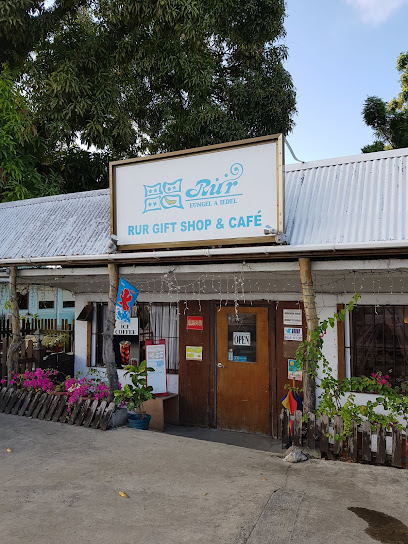
Ben Franklin Department Store
Explore a world of shopping at Ben Franklin Department Store in Koror, Palau, offering unique local finds and everyday essentials.
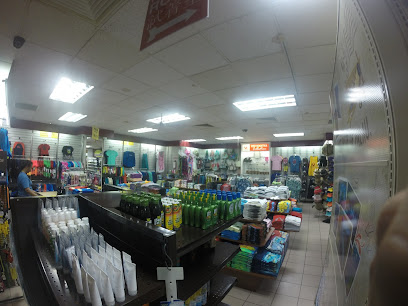
Amel Store
Explore the charm of Amel Store in Ngerulmud, Palau – your go-to grocery store for fresh local produce and essential supplies.
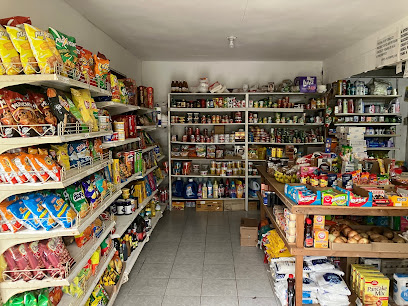
Wilson's Store
Experience the essence of Palauan culture at Wilson's Store, your go-to grocery destination in Ngermid, Koror, for fresh produce and local delicacies.
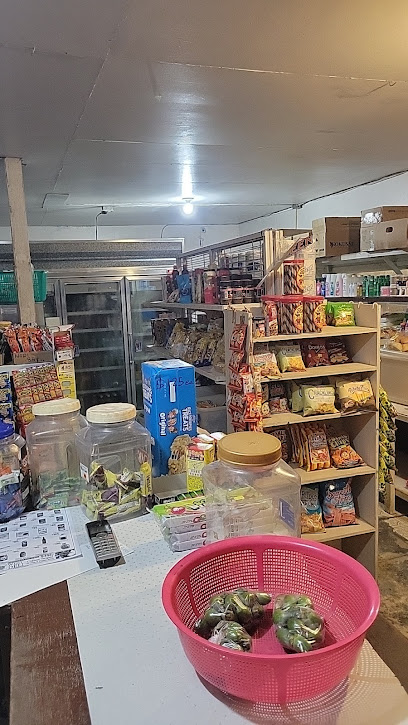
Globus Palau
Explore the vibrant collection of unique home goods at Globus Palau, where local craftsmanship meets modern style in Koror, Palau.
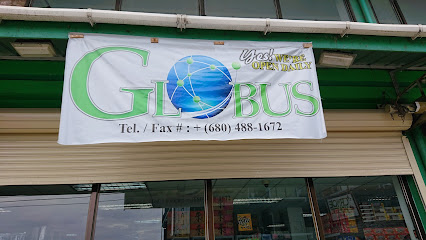
Lius Gift Shop
Explore Lius Gift Shop in Koror for unique souvenirs, delicious local cookies, and trendy accessories that embody the spirit of Palau.
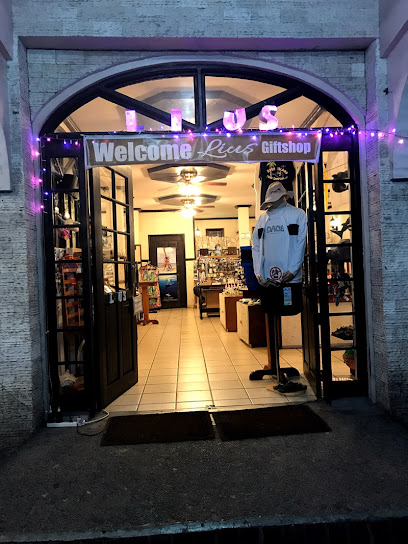
E&A Store
E&A Store in Melekeok: Experience a unique shopping adventure filled with local crafts and international brands in the heart of Palau.
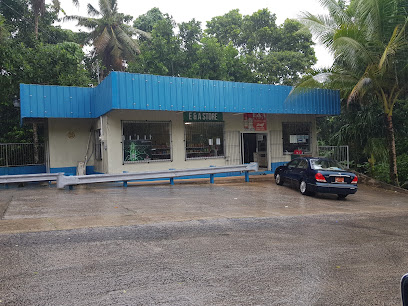
Long Beach
Discover Long Beach, a convenient store in Ngaraard, Palau, offering essentials, delicious deli options, and a friendly atmosphere for all travelers.
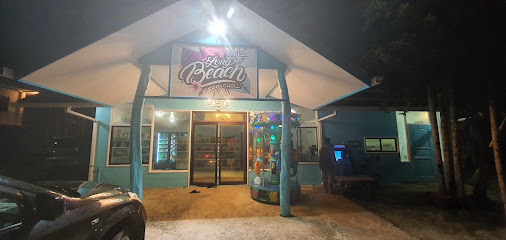
Palau Central Trading Co.
Explore Palau Central Trading Co. for unique gifts, local art, and gourmet treats that capture the spirit of Palau.
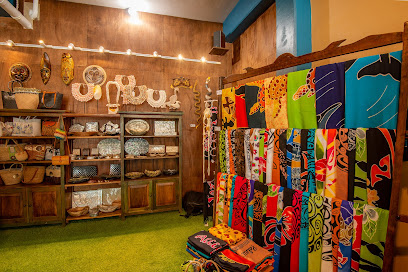
Elilai Budget Mart
Explore the taste of Palau at Elilai Budget Mart, your go-to grocery store for local delights and essentials in Koror.
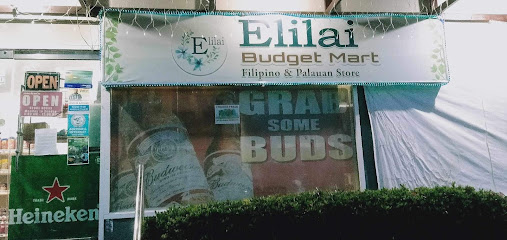
Jello's Fashion II
Explore Jello's Fashion II in Koror, Palau - a top convenience store offering snacks, drinks, and stylish clothing at great prices.
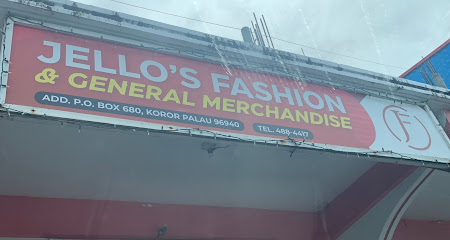
Capital Seaside Store
Experience the essence of Palau at Capital Seaside Store, where local culture meets delightful shopping in Melekeok.
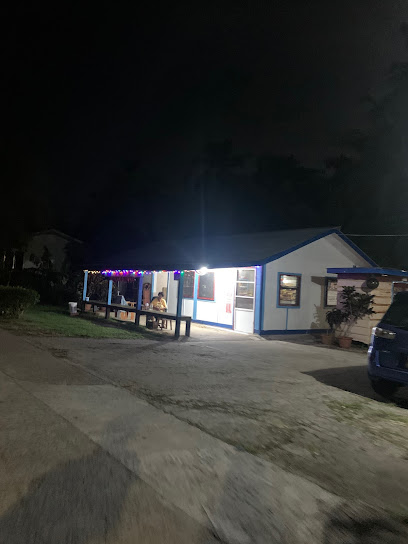
WCTC West Melekeok Mart
Discover WCTC West Melekeok Mart, your ultimate supermarket destination in Palau for local flavors and essential supplies.
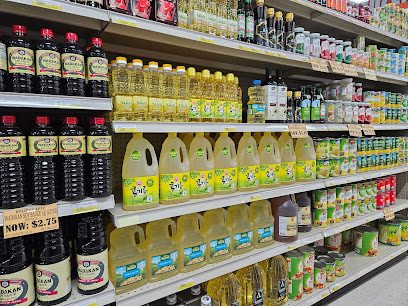
TSA Paradise Store
Explore TSA Paradise Store in Ngarchelong, Palau for all your travel essentials, local snacks, and friendly service in a convenient location.

Essential bars & hidden hideouts
Drop Off Bar and Grill
Experience the vibrant atmosphere and fresh seafood at Drop Off Bar and Grill in Koror, Palau – a culinary gem by the sea.
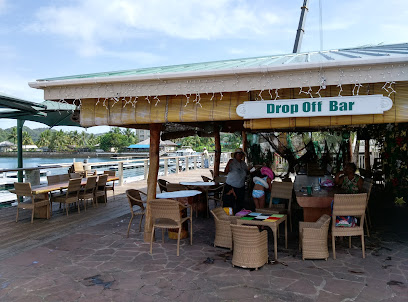
The Canoe House
Experience the vibrant atmosphere and diverse menu of The Canoe House in Koror, Palau, where dining meets entertainment in a tropical paradise.
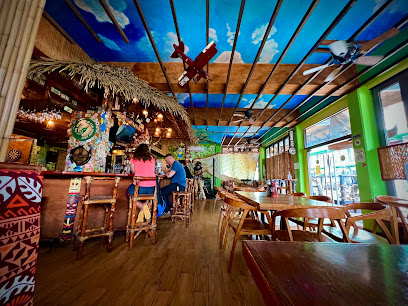
Okemii Deli & Internet Cafe
Experience the perfect blend of local flavors and connectivity at Okemii Deli & Internet Cafe in Koror, Palau.
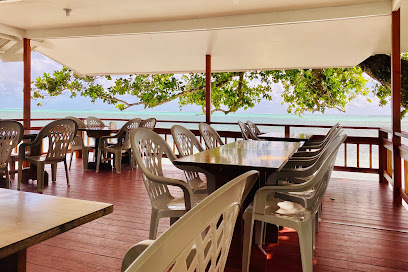
Red Rooster Cafe
Experience the vibrant flavors of Palau at Red Rooster Cafe, a culinary gem in Koror, perfect for all meal occasions.
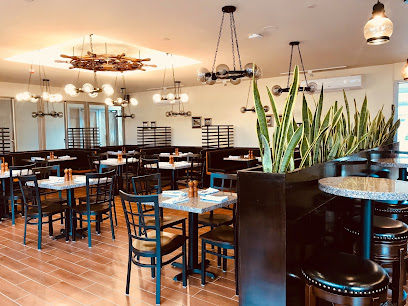
Krämer’s Bar and Restaurant
Discover the flavors of Palau at Krämer’s Bar and Restaurant, where local cuisine meets international flair in a picturesque setting.
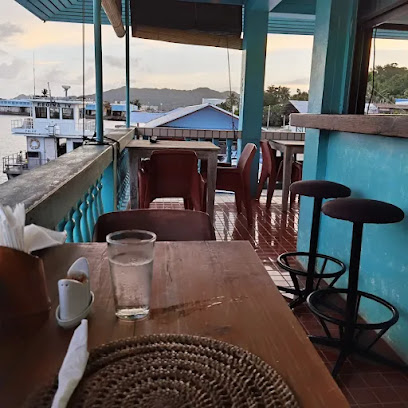
Riptide Beach Bar & Grill
Experience the vibrant flavors and stunning views at Riptide Beach Bar & Grill in Koror, Palau - your perfect dining destination.
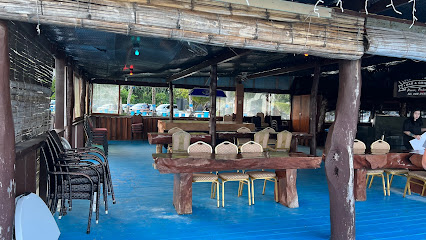
Barracuda Restaurant
Experience the vibrant flavors of Palau at Barracuda Restaurant, offering fresh seafood and local delicacies in a stunning oceanfront setting.
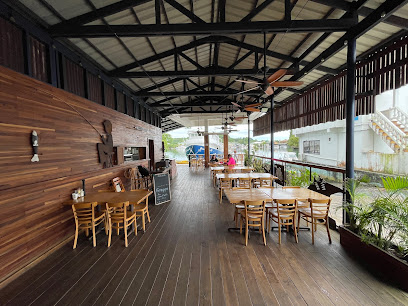
Hungry Marlin Restaurant & Bar at COVE Resort Palau
Experience culinary excellence at Hungry Marlin Restaurant & Bar in COVE Resort Palau, where stunning views meet delectable flavors.
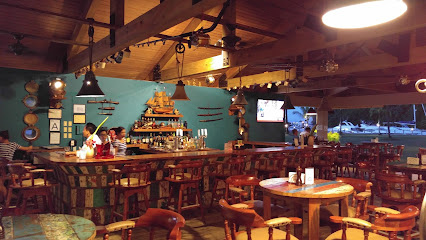
The Salad Bar
Experience vibrant flavors and healthy meals at The Salad Bar, Koror's go-to destination for nutritious dining.
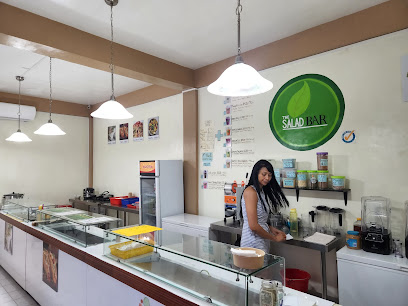
Executive Lounge
Discover the Executive Lounge in Koror, Palau - a culinary haven offering exquisite dishes in an elegant setting.
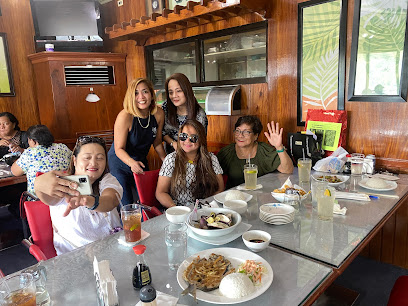
Bottom Time Bar and Grill
Experience the authentic flavors of Palau at Bottom Time Bar and Grill, where every meal is a celebration of local culinary artistry.
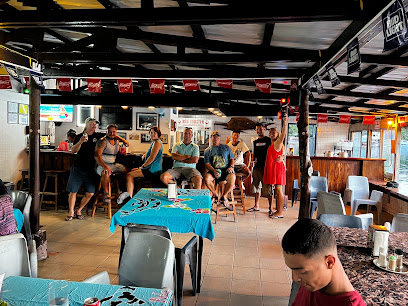
Jungle Bar
Experience the vibrant culinary scene and lively nightlife at Jungle Bar, Koror's premier dining destination for tourists.
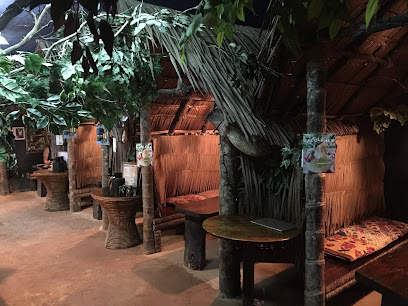
Weltz Bar at the Palasia Hotel
Experience the vibrant atmosphere and exquisite drinks at Weltz Bar, located in the luxurious Palasia Hotel in Koror, Palau.
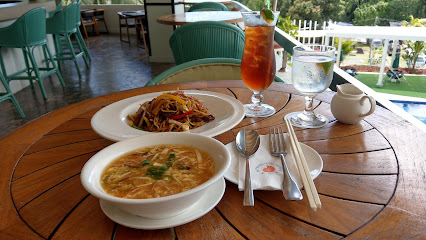
The Republic Restaurant & Bar
Experience the vibrant flavors of Palau at The Republic Restaurant & Bar, a culinary gem in Koror offering local and international dishes.

Local Phrases
-
- HelloAlii
[ah-lee] - GoodbyeKla mesulang
[kla me-soo-lang] - YesOngalek
[on-gah-lek] - NoCherrungel
[cher-run-gel] - Please/You're welcomeKmal mesulang
[kmal me-soo-lang] - Thank youKom kmal mesulang
[kom kmal me-soo-lang] - Excuse me/SorryChedecheklaklel
[cheh-deh-cheh-klah-klehl] - How are you?Kedie el mocha me ng diak?
[keh-dee-ehl moh-chah meh ng dee-ahk] - Fine. And you?Ngak a rengum?
[ngahk ah rehng-um] - Do you speak English?Ongalek a kaisengei?
[on-gah-lek ah kai-seng-ay] - I don't understandAk mocha ng diak
[ahk moh-chah ng dee-ahk]
- HelloAlii
-
- I'd like to see the menu, pleaseAk kchad el mellomes a rengul, te mad
[ahk kchahd ehl mehl-loh-mes ah rehng-ool, teh mahd] - I don't eat meatAk mla meringelii a ralm
[ahk mah la meh-ring-eh-lee ah rahlm] - Cheers!Ungil tutau
[oong-eel too-tow] - I would like to pay, pleaseAk klolechakl a rengul, te mad
[ahk kloh-leh-chah-klehl ah rehng-ool, teh mahd]
- I'd like to see the menu, pleaseAk kchad el mellomes a rengul, te mad
-
- Help!Kede
[keh-deh] - Go away!Keruul
[keh-rool] - Call the Police!Klukuk el kall
[kloo-kook ehl kahl] - Call a doctor!Klukuk el meduch
[kloo-kook ehl meh-dook] - I'm lostAk milenguiu
[ahk mee-leng-wee-oo] - I'm illAk mla mocha
[ahk mah la moh-chah]
- Help!Kede
-
- I'd like to buy...Ak kchad e meruul
[ahk kchahd eh meh-rool] - I'm just lookingAk mla medengei
[ahk mah la meh-den-gay] - How much is it?Kede mo melai?
[keh-deh moh meh-lai] - That's too expensiveKede kaiuei a ralm?
[keh-deh kai-way ah rahlm] - Can you lower the price?Mla mekngit a ralm?
[mah la meh-kngit ah rahlm]
- I'd like to buy...Ak kchad e meruul
-
- What time is it?Kede ko er ngii?
[keh-deh koh ehr nghee] - It's one o'clockOmecha daidai
[oh-meh-chah day-day] - Half past (10)Ngak a rechad
[ngahk ah reh-chahd] - MorningKede ngalek
[keh-deh ngah-lek] - AfternoonKede klou
[keh-deh kloh-oo] - EveningKede kora
[keh-deh koh-rah] - YesterdayKede mekelekolt
[keh-deh meh-keh-leh-kohlt] - TodayKede mocha
[keh-deh moh-chah] - TomorrowKede mocha
[keh-deh moh-chah] - 1Rongalek
[rohn-gah-lek] - 2Rouarour
[roo-ah-roor] - 3Roua
[roo-ah] - 4Roua chais
[roo-ah chai-ees] - 5Roua klou
[roo-ah kloh-oo] - 6Roua kora
[roo-ah koh-rah] - 7Roua mocha
[roo-ah moh-chah] - 8Roua ochuad
[roo-ah oh-chwahd] - 9Roua ousbech
[roo-ah ows-bech] - 10Roua uchul
[roo-ah oo-chool]
- What time is it?Kede ko er ngii?
-
- Where's a/the...?Ke kau el...
[keh kow ehl] - What's the address?Kede ko el chad er a rechad?
[keh-deh koh ehl chahd ehr ah reh-chahd] - Can you show me (on the map)?Mla mekngit a rengelakl?
[mah la meh-kngit ah rehng-eh-lah-klehl] - When's the next (bus)?Ke kau el chad el kmo ng te mla ruchad?
[keh kow ehl chahd ehl koh ng teh mah la roo-chahd] - A ticket (to ....)Kede rul a rechad?
[keh-deh rool ah reh-chahd]
- Where's a/the...?Ke kau el...
History of Melekeok
-
Melekeok, located on the eastern coast of Babeldaob Island, is one of the oldest inhabited areas in Palau. Archaeological evidence suggests that the first settlers arrived over 3,000 years ago. These early inhabitants were part of the Austronesian migration, bringing with them advanced knowledge of navigation, agriculture, and social organization. The ancient village of Melekeok played a crucial role in the development of Palauan culture, serving as a center for trade and social gatherings.
-
Melekeok has long been significant in the traditional political structure of Palau. It is home to the Bai ra Melekeong, a traditional meeting house that holds great cultural and historical importance. The Bai is an architectural masterpiece adorned with intricate carvings and symbolic art, reflecting the rich heritage of the region. Historically, Melekeok was a seat of power, where chiefs and leaders convened to make decisions that affected the entire island group.
-
During the late 19th and early 20th centuries, Palau came under the control of several colonial powers, including Spain, Germany, and Japan. Each of these periods left a mark on Melekeok. Under German administration, there was a focus on economic development, which saw the introduction of new agricultural practices. The Japanese era brought further changes, including infrastructure development and more intensive resource exploitation. These colonial influences have blended with traditional Palauan customs to shape the modern identity of Melekeok.
-
World War II had a profound impact on Palau, including Melekeok. The islands were the site of significant military activity due to their strategic location in the Pacific Theater. Although Melekeok itself was not the scene of major battles like Peleliu, the war brought considerable disruption to daily life. The local population endured hardships, and the landscape bore scars from the conflict. The legacy of the war is still evident today in the form of relics and historical sites that attract historians and tourists alike.
-
In recent years, Melekeok has undergone significant development, most notably becoming the capital of Palau in 2006. The construction of the Capitol Complex, known as Ngerulmud, marked a new chapter in the history of Melekeok. This modern complex houses the legislative, executive, and judicial branches of the Palauan government. The decision to move the capital from Koror to Melekeok was driven by a desire to promote balanced development across the islands and to honor the historical significance of the area.
-
Efforts to preserve and revitalize Palauan culture have been particularly strong in Melekeok. The community actively participates in traditional ceremonies, dances, and crafts that celebrate their heritage. The Palauan language is also promoted through educational programs and cultural events. The Bai ra Melekeong continues to be a focal point for these activities, serving as a living museum and cultural center where residents and visitors can learn about the rich traditions of this historic village.
Melekeok Essentials
-
Melekeok is located on Babeldaob Island, the largest island in Palau. The nearest international airport is Roman Tmetuchl International Airport (ROR) in Airai, around 25 kilometers from Melekeok. From the airport, you can take a taxi or arrange for a rental car. Another option is to use a pre-arranged shuttle service from your accommodation.
-
Transportation options in Melekeok are limited. Renting a car is the most convenient way to explore the area and the rest of Babeldaob Island. Taxis are available but may be scarce, so it's advisable to arrange them in advance. Public transportation is minimal, but some local buses and vans operate between major villages. Bicycling is also a viable option for short distances.
-
The official currency in Palau is the US Dollar (USD). Credit cards are accepted in some hotels, restaurants, and larger shops, but it's wise to carry cash for smaller establishments and local markets. There are a few ATMs available in Koror, but it's recommended to withdraw sufficient cash before heading to Melekeok.
-
Melekeok is generally a safe destination for tourists. However, standard precautions should be taken, such as avoiding walking alone at night and keeping an eye on your belongings in public places. There are no specific high-crime areas targeting tourists, but it's always best to stay vigilant.
-
In case of an emergency, dial 911. The nearest medical facilities are in Koror, about a 40-minute drive from Melekeok. Ensure you have travel insurance that covers medical emergencies. For minor health issues, there are pharmacies in Koror where you can purchase over-the-counter medications.
-
Fashion: Do dress modestly, especially when visiting cultural or religious sites. Avoid overly revealing clothing. Religion: Do respect local customs and traditions. When visiting a place of worship, dress appropriately and remove your shoes if required. Public Transport: Do be respectful and courteous to other passengers. Offer your seat to elderly locals. Greetings: Do greet people with a friendly 'Alii' (hello). A handshake is also common. Eating & Drinking: Do try local delicacies and accept food offerings graciously. Don't refuse hospitality, as it is considered impolite.
-
To experience Melekeok like a local, visit the local markets to buy fresh produce and traditional Palauan crafts. Engage with locals, as they are often friendly and willing to share stories about the area's history and culture. Don't miss visiting the Ngerulmud Capitol Complex, the seat of Palau's government, and the nearby Lake Ngardok Nature Reserve, the largest freshwater lake in Micronesia.
Trending Landmark in Melekeok
-
Belau National Museum
-
Jellyfish Lake
-
Japan-Palau Friendship Bridge
-
Dolphins Pacific
-
Palau Aquarium
-
Badrulchau Stone Monoliths
-
Palau National Capital
-
Peleliu Peace Memorial Park
-
World War II Japanese Communications Center
-
Airai Bai
-
Palau Beach Bungalows
-
81st Infantry Division Memorial
-
Palau Visitors Authority
-
Bai Melekeong
-
Chandelier Cave
Nearby Cities to Melekeok
-
Things To Do in Ngerulmud
-
Things To Do in Ngaremlengui
-
Things To Do in Ngchesar
-
Things To Do in Ngardmau
-
Things To Do in Ngatpang
-
Things To Do in Ngaraard
-
Things To Do in Airai
-
Things To Do in Koror
-
Things To Do in Koror Town
-
Things To Do in Yap
-
Things To Do in Siargao
-
Things To Do in Davao City
-
Things To Do in Cagayan de Oro
-
Things To Do in Camiguin
-
Things To Do in Bohol







